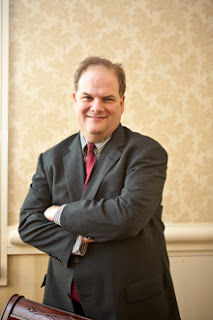By Kelly Buckland, Executive Director
National Council on Independent Living
While there is much debate about controlling costs and improving quality in our healthcare system, you don’t hear much about one simple way to achieve both: preserve access to good home-based care and equipment.
Home medical equipment and services, such as wheelchairs, oxygen therapy, and other types of durable medical equipment, are essential to the safety, health, and independence of several million Medicare beneficiaries. Medicare covers seniors and people living with disabilities.
Like everyone else, people living with disabilities want to live independent and healthy lives. I know this because I am a person living with a disability. I have relied on my power wheelchair for mobility for more than 40 years, and I know the importance of having a well-functioning wheelchair that meets my physical needs and preserves my ability to live independently.
However, the agency that oversees Medicare, the Centers for Medicare and Medicaid Services (CMS), seems to have overlooked many of these basic facts when they designed a “competitive” bidding program for home medical equipment. This bidding program, which CMS claims works in the best interest of Medicare beneficiaries, actually does the exact opposite. As the executive director at the National Council on Independent Living, I feel it is important to highlight some of the troubling features of this program.
The bidding program applies to commonly used equipment and services, such as oxygen therapy, enteral nutrients (tube feeding), continuous positive air pressure (CPAP) and respiratory assistive devices, power wheelchairs, walkers, hospital beds and support surfaces, and mail-order diabetic supplies. By design, this bidding program dramatically limits the number of home medical providers allowed to provide the bid-upon equipment and supplies. This complicates and slows down the process of discharging people from a costly hospital stay to far less-expensive—and beneficiary -preferred--home-based services. The program also makes it harder to obtain required equipment and services. Ultimately, this steep reduction in providers also stifles rather than promotes competition.
The program began on January 1 in an initial round of nine metropolitan areas – Charlotte, Cincinnati, Cleveland, Dallas-Fort Worth, Kansas City, Miami, Orlando, Pittsburgh, and Riverside, California. It will spread to another 91 areas beginning later this year. However, in the first nine areas alone, hundreds of Medicare beneficiaries have already reported difficulty finding local equipment or a service provider, delays in obtaining medically required equipment and services, and reduced quality of care and products.
This is no surprise to those of us in the independent living community who have known about the numerous flaws in the CMS bidding system. Nor is it a surprise to the 167 economists and auction experts who called the design of the system inherently flawed because it encourages irresponsible bids and unsustainably low prices.
The solution is H.R. 1041, a bipartisan bill in Congress that would repeal this misguided and flawed bidding program. In addition to the National Council on Independent Living, many other advocacy organizations support this legislation. Those organizations include the ALS Association, the Brain Injury Association of America, the Christopher and Dana Reeve Foundation, the International Ventilator Users Network, the Muscular Dystrophy Association, National Emphysema and COPD Association, the National Spinal Cord Injury Association, and United Spinal Association, to name a few. The bill also has strong support from 150 Republicans and Democrats in Congress.
Everyone agrees that we need to contain healthcare costs. But we must also ensure that Americans with disabilities can continue to get the equipment and services they need in order to remain independent in the one setting that is both cost-effective and preferred – our own homes.
 Jay brings sixteen years of legislative, political, and management experience to AAHomecare, which serves him well in advancing our legislative initiatives on Capitol Hill, as well as coordinating our political activities. His years working on Capitol Hill for several members of the House of Representatives provide valuable knowledge in the legislative and political processes, as well as helping cultivate invaluable relationships on The Hill that assist his lobbying for homecare issues on a daily basis.
Jay brings sixteen years of legislative, political, and management experience to AAHomecare, which serves him well in advancing our legislative initiatives on Capitol Hill, as well as coordinating our political activities. His years working on Capitol Hill for several members of the House of Representatives provide valuable knowledge in the legislative and political processes, as well as helping cultivate invaluable relationships on The Hill that assist his lobbying for homecare issues on a daily basis.





